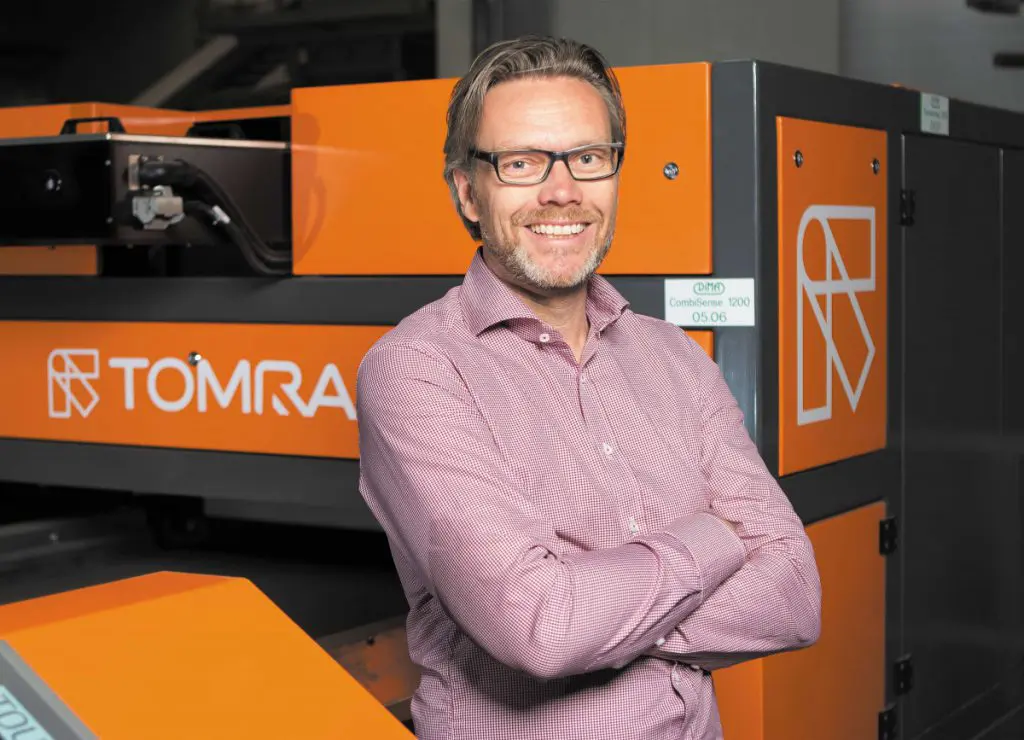Germany – ‘Over 4900 of our sorting systems have been installed in 50 countries worldwide’, TOMRA’s senior vice president Tom Eng announced at the tech company’s test centre demonstration this week. He underlined that recycling solutions for aluminium would become more and more important as modern-day cars are designed to be lighter. The good news is that TOMRA’s ‘high precision’ X-ray transmission sorting unit X-tract ensures an aluminium of up to 99%.
A total of 96.1 million motor vehicles were produced globally last year – of which almost 78 million represented passenger cars.
Growth was up 14% in China, 2.8% in Europe and 1.6% in North America compared to 2015 results. The fact is that the vehicles awaiting scrapping in the next two decades will see a significant shift from steel to aluminium. ‘More scrap also means intensified competition,’ Recycling International was told during TOMRA’s two-day gathering in Koblenz, Germany.
Approximately 715 000 tons of metal is recovered annually with the help of TOMRA Sorting Recycling equipment. This volume could be used to create more than four thousand Boeing 747 airplanes.
Welcome to the future
‘Automotive scrap is an important market for us,’ affirmed Frank van de Winkel, business development manager TOMRA Sorting Recycling during the tour of the company’s highly advanced test centre.
He was proud to prove the ‘powerful’ meaning behind the term LIBS. ‘Welcome to the future, ladies and gentlemen. At TOMRA, we are sure that laser induced breakdown spectroscopy will play a big part in revolutionising the recycling industry as we know it,’ Van de Winkel said.
With a small nod, he signalled the technical crew to start the sorting programme. A monitor showed what was going on inside the prototype machine; how lasers were scanning each individual piece of automotive stamping scrap before ejecting them in the bins at the end of the line.
‘One reading of the laser is sufficient, as you can see. But you can choose to perform two measurements per object to further minimise mistakes,’ Van de Winkel explained. A big benefit of the laser is that it is able to monitor the entire width of the belt. This means that plant operators no longer have to separate materials into single lanes.
As a result, different aluminium wrought alloys can be separated at ‘unprecedentedly high levels’ of efficiency, achieving sorting accuracies of at least 99% purity with high throughputs of three to seven tons per hour.
New hope for plastic scrap
The tour also included an elaborate demonstration of TOMRA’s innovative black plastics recycling solution; the combined use of the AUTOSORT and AUTOSORT BLACK machines. Delegates witnessed how the installation sorted different polymers such as black PE, black PP, black PET as well as styrene quickly and efficiently. Van de Winkel pointed out that AUTOSORT is the first near-infrared (NIR) scan system that does not require an external light source.
‘You see, it incorporates our patented Flying Beam technology,’ he added. This feature increases sorting stability over time and also reduces power consumption and maintenance levels by some 70%.
Balance between tech and care
Indeed, having to schedule frequent maintenance stops can drain a lot of money from a recycler, observed Peter Geisler, TOMRA’s service director recycling. ‘That’s why we have developed a comprehensive care package that covers anything from consulting, periodic system testing – up to 12 times per year, as well as equipment upgrades, insurance, finance and staff training,’ he summarised.
‘The latter gives our clients the skills to take action themselves when a problem occurs. This package is tailored to each specific company so the crew can, for example, easily replace a spare part,’ Geisler noted.
A more detailed review of TOMRA’s test centre demo and recycling conference will be published in the upcoming issue of Recycling International.
Don't hesitate to contact us to share your input and ideas. Subscribe to the magazine or (free) newsletter.



